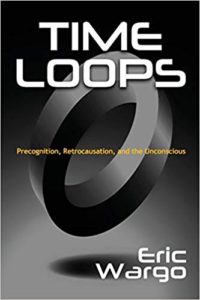“Tell me how you really feel about your flying saucer”
“Along with his freely and evenly hovering attention which enables the analyst to listen simultaneously on many levels, he needs a freely roused emotional sensibility so as to perceive and follow closely his patient’s emotional movements and unconscious fantasies.” Paula Heimann
When I first came across this quote about a psychoanalyst’s “freely and evenly hovering attention” (reproduced in Christopher Bollas’s book The Shadow of the Object), my mind immediately supplied an image of the doctor as a flying saucer, floating silently over a patient on a couch. I’m sure that’s not the metaphor the author had in mind, but it seems apt, and it seems like the metaphor could flow in both directions.
Jacques Vallee calls UFOs a control system, a thermostat regulating our psyches. Jung called them a material symbol of individuation that fascinates us at a time of high collective anxiety. The underlying idea is that UFOs, whatever else they are, may serve a therapeutic function, helping us in our process of evolution as individuals and as a species, and helping us move past our inner and outer conflicts.
Freud discovered that the key to curing people of their neuroses was the process he called “transference.” By saying very little—often maddeningly little—the doctor turns himself into a silent projection screen for the patient’s unconscious fantasies, and a stand-in for the earliest love objects in the patient’s life. The process of cure is getting the patient to recognize these fantasies and identify the object his present confusions and conflicts are really directed toward. As fits the stereotype, the “object” referred to by psychoanalysts, particularly those of the object-relations school, is generally the mother.
Transferrence is sometimes called “transference love” because the patient not only substitutes the doctor for the real love object but also expects or hopes for that love to be returned. The patient unconsciously hopes and believes the doctor secretly loves him back, and even “seduces” the doctor through his symptoms. The typical patient wishes to have the most interesting symptoms, to be the doctor’s most fascinating case.
A commonly expressed notion is that ETs are visiting us because they find humans particularly remarkable and unique, our civilization and our planet particularly rich and exciting. This goes right along with the Close Encounters fantasy: Their silence and elusiveness are really a big tease and preparation for the final big show of their love, where they will reveal at last the truths about ourselves and our special place in the universe that they have been keeping secret until we were ready to join them as equals. Along with this fantasy is the notion that, once they have disclosed themselves to us, we will put aside our childish squabbles and conflicts and set aside our petty materialistic strivings, and finally become a mature, rational, humane species.
Intellectually I think the notion that “they” have any particular love for us is naïve. I suspect theirs is no more than a professional concern, and that humanity is just one of their countless patients. But I confess that I can’t help but harboring in the back of my mind that same hope for a final disclosure—not from “the government” but from the ETs themselves—and the belief that these hovering, attentive doctors hold all the answers about us and could alleviate all our pains and help us resolve our conflicts.
Debunkers of the paranormal often recite the idea that people believe in things like UFOs because they crave some meaning in their lives. I think this is true. Who doesn’t crave some meaning in their lives? Who doesn’t want to believe? Even the attachment to science is, at bottom, an all-too-human faith in a solid foundation of meaning. When we have a crisis of faith, as we often do at a crossroads, we may swallow our pride and visit a doctor. Just because we go to the doctor to help us fill a hole in our lives doesn’t mean the doctor doesn’t exist. It’s just that our crisis has made us start to pay attention.



